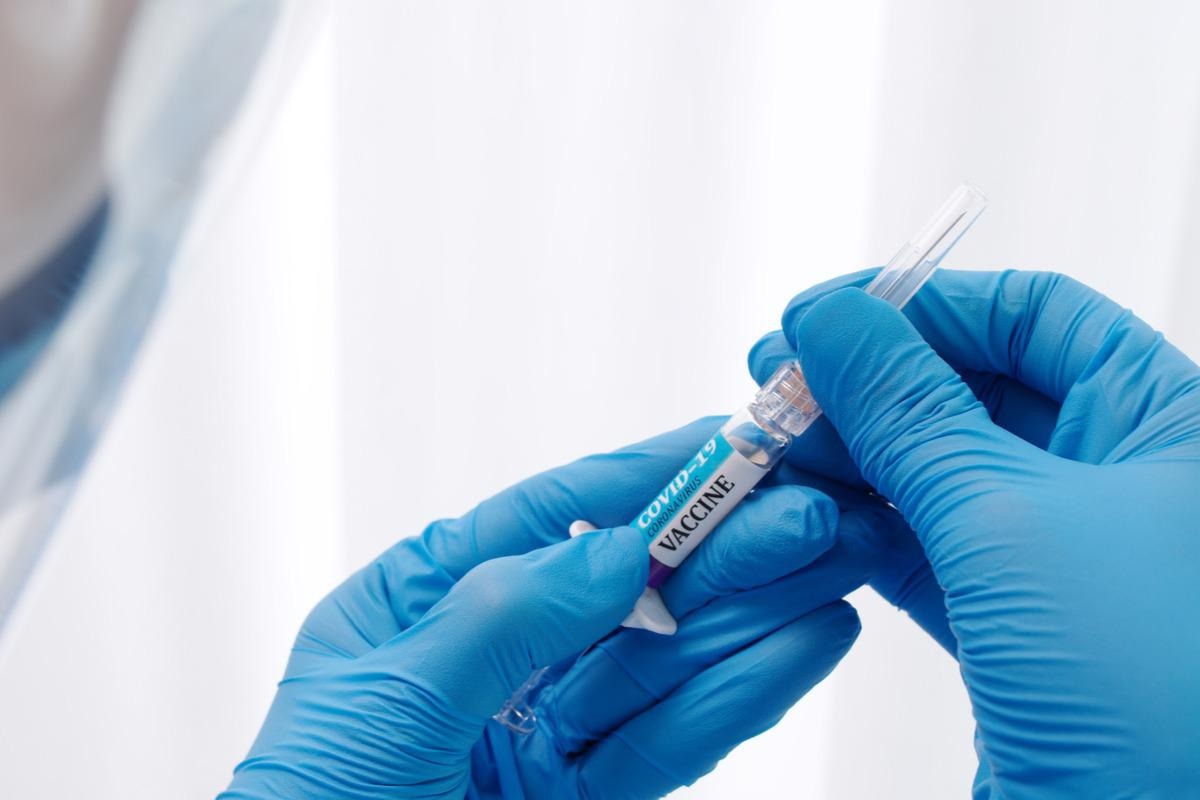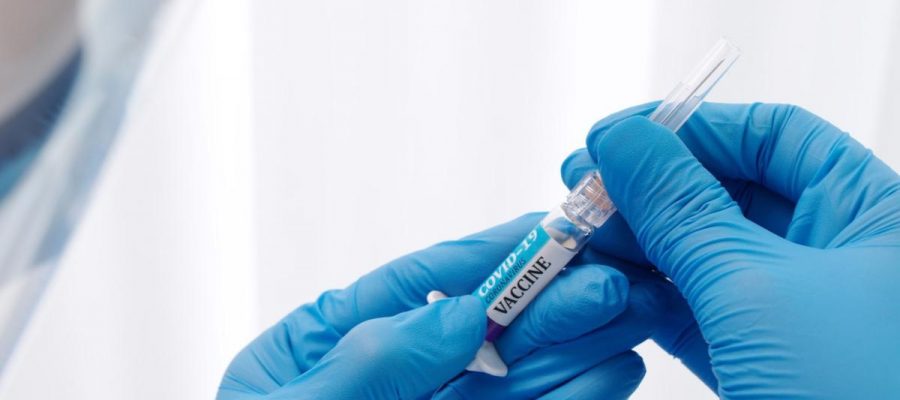Recent evidence indicates a substantial waning of the efficacy of coronavirus disease 2019 (COVID-19) vaccines. The effectiveness of a vaccine can be ascertained by studying the rate of infection and mortality post-vaccination. The case fatality rate (CFR) can also project the efficacy of vaccines but is not altered by unmeasured patient-related factors or environmental factors, unlike infection and mortality rates.
 Study: ESTIMATING THE EFFECT OF VACCINATION ON THE CASE-FATALITY RATE FOR COVID-19. Image Credit: Chaay_Tee/Shutterstock
Study: ESTIMATING THE EFFECT OF VACCINATION ON THE CASE-FATALITY RATE FOR COVID-19. Image Credit: Chaay_Tee/Shutterstock
A recent study was published in medRxiv* preprint server where CFR was assessed for COVID-19 vaccine effectivity.
This study selected cases from VA’s COVID Shared Data Resource (CSDR). The selection criterion was an index infection before October 2021. Patients who were detected positive for the infection in July, August, or September 2021 were deemed to harbor the Delta variant.
The primary outcome was death – within 60 days of confirmed severe acute respiratory syndrome coronavirus 2 (SARS-CoV-2) infection. The study cohort was followed through November 2021.
Subjects who received one dose of the Johnson and Jonson vaccine or two doses of any other formulation, at least 14 days before the diagnosis, were considered vaccinated. Preexisting diseases and conditions were accounted for in case they existed 14 days before the infection. Four vital signs and seven routinely performed laboratory tests were considered if these were recorded 14 days before the infection.
Laboratory tests included were hemoglobin A1c (HbA1c), lipoprotein cholesterol, high-density cholesterol (HDL-C), estimated glomerular filtration rate (e-GFR), serum albumin, and hematocrit. 13 parameters were derived from each measurement, and metabolic control was assessed. Additionally, the ongoing treatment was assessed by reviewing all medications taken 14 days before the diagnosis of COVID-19. Age, race, gender, veteran status, smoking habit, and use of supplemental oxygen were also noted.
Findings
Out of the 3,47,220 patients in the VA’s CSDR, 3,39,772 subjects had at least one preexisting condition. The mean age of the subjects at the time of COVID-19 diagnosis was 58.6±16.7 years. Among these, the majority were males – 84.1%; 0.7 %were on supplemental oxygen; 11.8% were smokers; 9.1% were vaccinated 14 days prior or earlier – of being diagnosed with COVID-19. At the same time, 21.5% of the subjects were diagnosed after July 1st, 2021. However, 18,120 subjects died within 60 days of the diagnosis.
Comparison of survivors versus non-survivors revealed that old white males on supplemental oxygen were more likely to suffer fatal outcomes. At the same time, vaccinated individuals had lower mortality rates. The CFR was lower for patients presumed to be infected with the delta variant. On the other hand, longer time-lapse after vaccination completion was associated with higher fatality rates.
The observations suggested that the delta variant was more lethal but could be rendered less potent by vaccination.
Discussion
The study emphasized the importance of classifying the effect of vaccines—the usual method was a composite measure that reflects the three underlying risks of infection – exposure, infection, and death. However, this method may be ineffective in explaining why vaccination fails. In this study, CFR was used to delineate the effectiveness of COVID-19 vaccination, which only includes the last risk – death. The study also determines the efficacies of vaccines without considering any other protective measures or preventive strategies, for instance – quarantine and social distancing.
The present study included measurements like oxygen saturation, which are critical determinants for survival. The methodology employed was unique, as it used an intensive computer system that processes millions of observations. Overall, a 71% reduction in death was reported post-vaccination. However, the CFR declined after 10-14 weeks after vaccination and escalated again. These time-points hint that a booster dose after six months could be beneficial.
The study collected information from the Centers for Disease Control (CDC) to track infections from the delta variant. It was stated that the prognosis of the delta variant could not be confirmed until other factors, such as – vital signs, laboratory tests, and vaccination status were controlled.
The results of this study can be used to predict deaths caused by COVID-19. Such information can project future requirements of resources like intensive-care unit (ICU) beds, anti-viral drugs, and monoclonal antibody infusions. Furthermore, these can serve as a guide to counseling unvaccinated patients. Therefore, the findings can aid in devising a personalized approach towards COVID care.
Finally, the findings highlighted the effectiveness of COVID-19 vaccination, although a definite improvement in the survival rate could not be established. Nevertheless, COVID-19 vaccination modulates several factors that affect recovery.
Conclusion
It was concluded that CFR could better assess the virulence of SARS-CoV-2 and that vaccination is an effective approach to preventing mortality from COVID-19. Furthermore, the present study uncovered a new modality for evaluating the effectiveness of preventive and therapeutic interventions.
*Important notice
medRxiv publishes preliminary scientific reports that are not peer-reviewed and, therefore, should not be regarded as conclusive, guide clinical practice/health-related behavior, or treated as established information.
-
Murata, G. et al. (2022) "ESTIMATING THE EFFECT OF VACCINATION ON THE CASE-FATALITY RATE FOR COVID-19". medRxiv. doi: 10.1101/2022.01.22.22269689. https://www.medrxiv.org/content/10.1101/2022.01.22.22269689v1
Posted in: Medical Science News | Medical Research News | Disease/Infection News
Tags: Albumin, Antibody, Cholesterol, Coronavirus, Coronavirus Disease COVID-19, covid-19, Drugs, Efficacy, HbA1c, Hemoglobin, Laboratory, Lipoprotein, Monoclonal Antibody, Mortality, Oxygen, Respiratory, SARS, SARS-CoV-2, Severe Acute Respiratory, Severe Acute Respiratory Syndrome, Smoking, Syndrome, Vaccine

Written by
Nidhi Saha
I am a medical content writer and editor. My interests lie in public health awareness and medical communication. I have worked as a clinical dentist and as a consultant research writer in an Indian medical publishing house. It is my constant endeavor is to update knowledge on newer treatment modalities relating to various medical fields. I have also aided in proofreading and publication of manuscripts in accredited medical journals. I like to sketch, read and listen to music in my leisure time.
Source: Read Full Article
